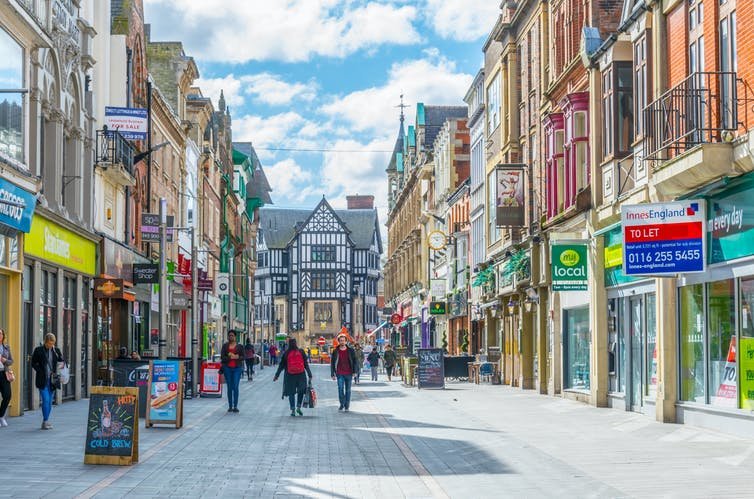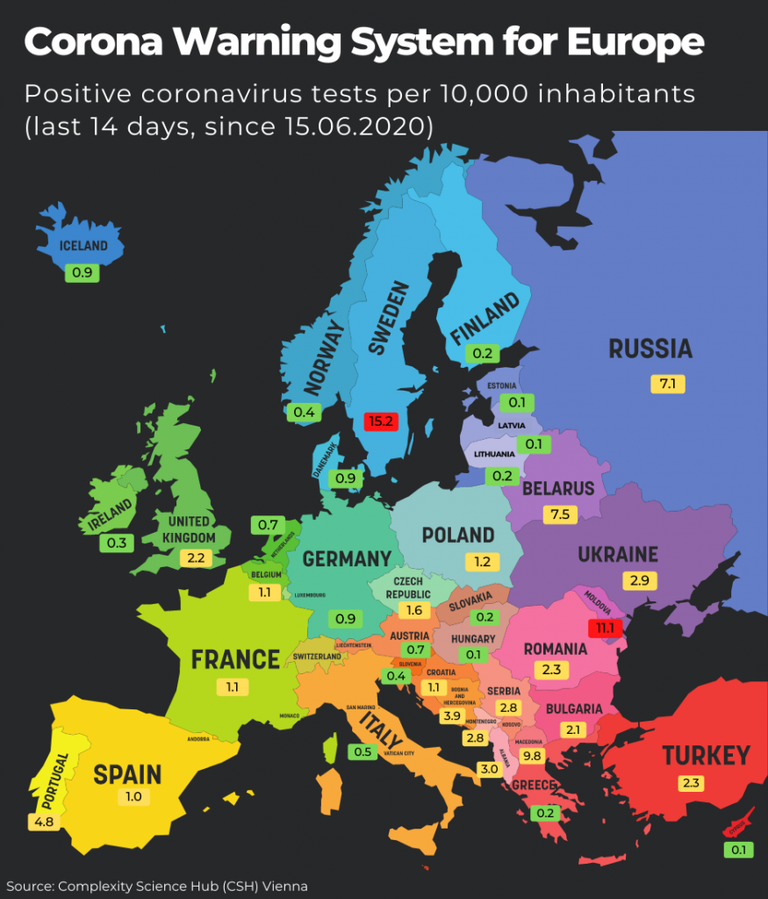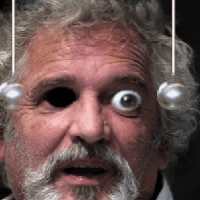
PLEASE EXCUSE THE CLICK-BAIT - this photo has nothing whatsoever to do with the article posted! The image was from a Chinese Shop in Vienna I had taken some years ago.
The report below is a reprint under a Creative Commons License from THE CONVERSATION. While it uses as example Leicester, UK, it is topical everywhere, since there are several more places in other countries that had to be locked down because of cluster outbreaks.
You find many interesting links in this article that give additional information and deeper insights.
On my artist website, you will find that I had dealt with the subject of this virus quite extensively: see under the blog category CORONA VIRUS
Local lockdowns could lead to civil disorder – here's why
 Leicester, England.
trabantos/Shutterstock
Leicester, England.
trabantos/Shutterstock
Clifford Stott, Keele University
The city of Leicester, in the UK’s Midlands region, is facing a lockdown following a recent spike in COVID cases. The decision was confirmed by UK home secretary, Priti Patel, on the BBC’s Andrew Marr Show on Sunday, June 27.
The prospect of these local lockdowns being introduced in the UK was announced by the health secretary, Matt Hancock, at a daily briefing on June 7. National lockdowns create significant economic and social harms, so moving beyond them is a priority for governments everywhere – and local lockdowns have been proffered as the solution.
Local lockdowns are not new. Indeed, the first lockdown of the pandemic was in the city of Wuhan in China. More recently, Germany, Italy and Portugal have also started implementing this strategy.
Local lockdowns have frequently gone hand in hand with draconian police enforcement and sophisticated but intrusive systems of tracking, tracing and isolating that rely on public trust.
These systems are important because they help to identify local outbreaks quickly and they allow control measures to be rapidly imposed. But it will be months before the UK has such a system. So, without it, by the time an outbreak is detected locally, it may already be too late for a focused lockdown to have any effect.
If a lockdown is imposed, it has to be enforced, but it’s unclear what legal powers would be available to allow a city to be effectively cut off from the rest of England, nor how such laws would be enforced.
In the absence of any workable means of identifying who has the virus, there is a real danger that imposing control measures will be seen as illegitimate by large sections of the population.
Perhaps the most challenging aspect of the proposal put forward by the UK government is that local lockdowns could take place not just between but within the same town or city – hyperlocal lockdowns. The ideas is that you can rapidly impose a hyperlocal lockdown to snuff out the outbreak without harming economic recovery and normal social functioning elsewhere.
Profound divisions
The difficulty is that, in towns and cities, small geographical areas often intersect with profound socioeconomic and ethnic divisions. For example, the north London borough of Enfield, despite being in the UK’s most affluent city, is relatively deprived. Within the borough there are also stark differences – those in the more affluent west are far more likely to be white and live on average ten years longer than those in the relatively deprived and more ethnically mixed east. Research has shown how these factors of deprivation played an important role in the spread of rioting to Enfield during the English riots of August 2011.
We already know that those in lower socioeconomic positions and people from black and other minority communities are far more susceptible to the virus. Poor and minority populations are not just far more likely to die from the virus but also experience hardships from control measures relative to those living in white and economically advantaged neighbourhoods. So it’s predictable that local lockdown will be far more likely to fall on disadvantaged and ethnically mixed communities. And it will aggravate existing inequalities known to be associated with rioting.
Anger arising from those who feel they have been locked down unfairly may be directed at those sections of the community thought to have started the outbreak and at the police, who will be charged with enforcing the boundaries between rich and poor neighbourhoods. This will be particularly problematic in areas whose populations have more difficult historical relations with the police.
There are already signs of growing tensions in the UK around racist policing and conflicts between police and young people asserting their right to socialise and enjoy themselves. It has been argued that restrictions imposed in the UK during the early stages of the outbreak did not lead to conflict because they were perceived – for the most part – to be fair.
Initially, we were “all in it together”. But as societies transition toward easing lockdown, there is a real danger that reimposing selective measures will break down this sense of collective endeavour in ways that further amplify inequality and social tension, undermine social cohesion and further provoke civil disorder.(html comment removed: Below is The Conversation's page counter tag. Please DO NOT REMOVE. ) (html comment removed: End of code. If you don't see any code above, please get new code from the Advanced tab after you click the republish button. The page counter does not collect any personal data. More info: https://theconversation.com/republishing-guidelines )
(html comment removed: End of code. If you don't see any code above, please get new code from the Advanced tab after you click the republish button. The page counter does not collect any personal data. More info: https://theconversation.com/republishing-guidelines )
Clifford Stott, Professor of Social Psychology, Keele University
This article is republished from The Conversation under a Creative Commons license. Read the original article.
Updates particularly important for the EU:
The Coronavirus in Austria & Vienna | EU to Open Borders to 14 Overseas Nations – US, Russia, Brazil Not Included
The link is from METROPOLE - a Austrian Expat Community Publication
The current headline above is from the latest Update, quote:
June 30, 2020: The European Union formally agreed on opening the external borders of the EU to several countries outside the European economic area and travel zone. Travelers from these countries are free to travel to Europe: Japan, South Korea, Canada, New Zealand, Australia, Rwanda, Serbia, Montenegro, Georgia, Uruguay, Thailand, Morocco, Algeria, Tunisia. Travelers from Russia, Brazil and the US are banned from entering the EU due to high numbers of active coronavirus cases and new infections.

SOURCE
Interesting video from one week ago, regarding local lockdowns:
Visit my website
▼

PRINTS OF MY ARTWORK AVAILABLE HERE:

If you find this useful, please repost!
A friend of mine living in Berlin, grew up in Gütersloh, which I think is mentioned in the video you've included. Her mother still lives there and so is lockdown in the town.
This instance stems from works at the local meat processing factory (slaughter house?) testing positive. Many of these were EU nationals from the East. Not wanting to be quarantined, they apparently absconded en mass via co-ordinated pickups on the local highway by family or friends.
After the "horse" had literally bolted, the authorities then locked down the entire town.
Apparently in Berlin, there was a house or a block, where the kids had tested positive at school, so they locked the house / block down.
But now after reading your article, this appears to be the strategy going forward in many other places.
The hype media machine is now talking about a new possible virus in China.
It would seem the circus is not over yet.
They gotta keep up the scary news, even if they are just rumors of a "new" virus. I think eventually this will go the way of SARS. Even though with the relaxation of restrictions and new cases being reported, the severity (at least in my location) has not been as bad anymore, and intensive care has actually decreased. I was in Canada at the time SARS hit there and remember it got weaker and disappeared. They searched for vaccines, but quit when there was no profit to be had from it.